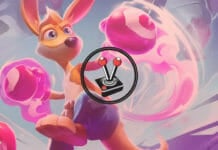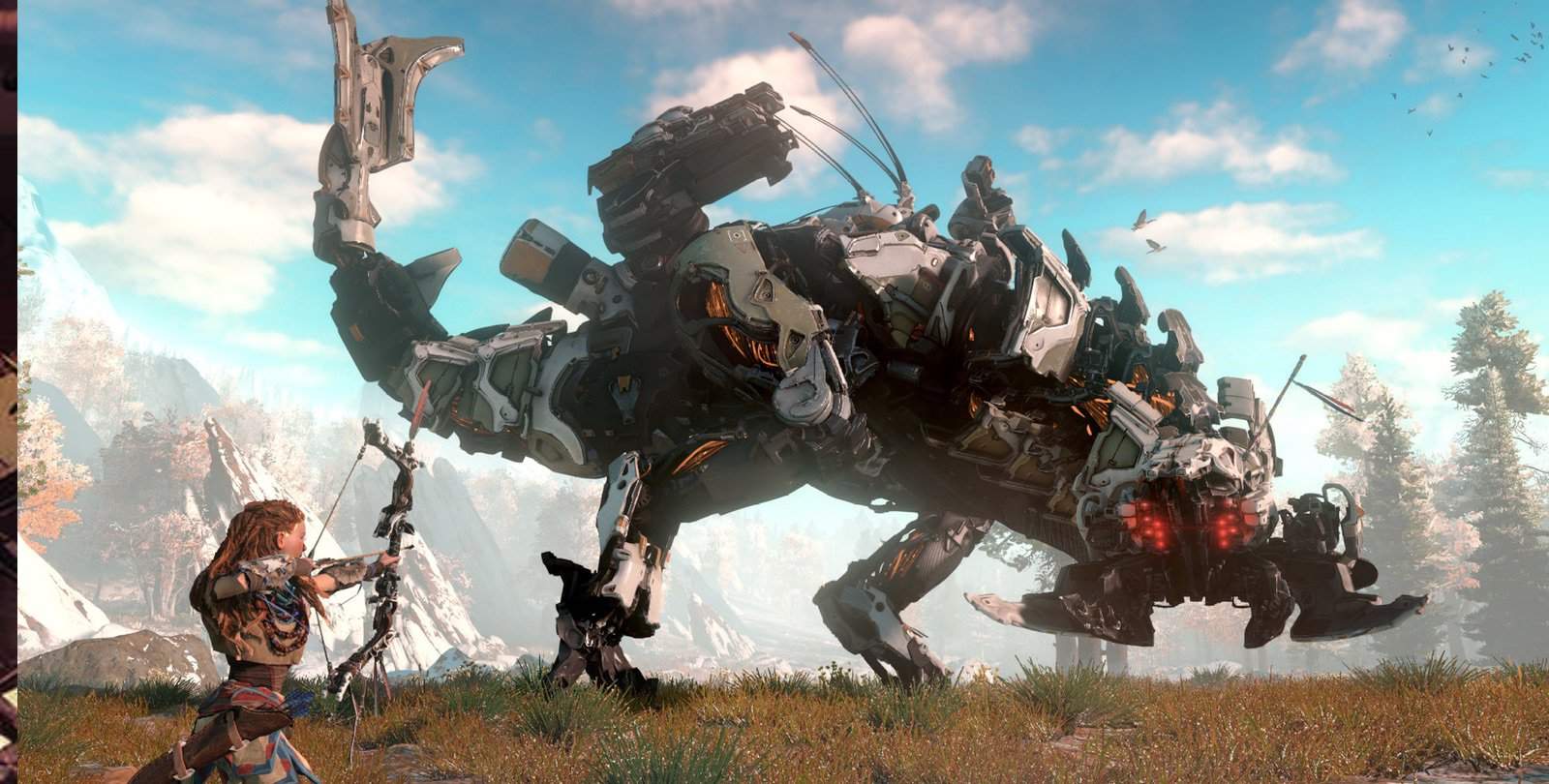Mass Effect: Andromeda is Bioware’s newest game that features science-fiction and open-world space exploration. It is also the latest in the Mass Effect series of space operas, and the first without Commander Shepard.
The game has been out for about two weeks now. As a huge fan of the series, I could barely contain my excitement when the game was announced at E3 2015. Now, two years later, there is one question that remains: has the wait been worth it?
Thanks to a hefty 10-hour trial, anyone with an EA Access or Origin Access subscription can give Mass Effect: Andromeda a go. That is what I initially did, before buying the game and spending a further 10 hours with the game. Here are my thoughts on the game so far.
Understanding Legacy
Ten years ago, the original Mass Effect released to unsuspecting gaming communities around the world. It was an ambitious project set in a brand new game world. Mass Effect offered an alternate future where humans are regarded as ‘the aliens’ and where other space-faring species continue to govern just about all of the Milky Way Galaxy. The game introduced groundbreaking story telling that was coupled with exploration, player choice, and an expansive universe.
Mass Effect takes place in the year 2183. A few decades before humanity joined the Citadel Council, they incited what is now called the First Contact War. After humanity discovered its first Mass Relay, a device that enables Faster Than Light (FTL) travel, they expanded onto the Milky Way galaxy at rapid speeds. In 2157, humanity’s expansion was discovered by the Turians – a militaristic space-faring race who had joined the council decades before. Upon learning that humanity was trying to activate Relay 314, an act that is forbidden under Citadel regulations and is considered as an act of terrorism, the Turian Fleet opened fire… and humanity fired back.
Three months into the war, the Council intervened and negotiated peace between humanity and the turian hierarchy. It is here that humanity learned about the existence of the Citadel, why activating dormant relays are considered illegal, and that they were, after all, not alone in the universe. It is these events that spur the interpersonal conflicts present in the first Mass Effect game.
New Mass Effect – a stunning realisation
The original Mass Effect trilogy did a great job of making the player’s exploits as Commander Shepherd feel new, unique and interesting. As a promising Alliance soldier who was only just starting his journey as a space-faring hero, it gave players purpose to continue. Alas, the player’s exploits as either Scott or Sara Ryder, the new protagonists in Mass Effect: Andromeda, are no where near as compelling from a character perspective. As a fan of the series, it is only natural to compare the protagonists from each game, and the stories they are embroiled in. That is exactly what I did as I started to play Mass Effect: Andromeda.
However, after spending a good four hours on the starting planet alone, I quickly noticed that nothing felt right. Sure, the game played a heck of a lot like Mass Effect, but characters, both human and alien, felt… off. It was not until I stepped foot on the Nexus, a new hub that acts as Andromeda’s Citadel, that I figured it out.
As Director Tann (a salarian), and Kesh (female krogan) spoke to me, I had an epiphany: Mass Effect: Andromeda is not MORE Mass Effect — this is NEW Mass Effect. I spoke those words aloud, and it all seemed to make sense. I think that point alone is going to be the hardest thing to digest for any player who has enjoyed the original games and who decides to pick up Mass Effect: Andromeda. I know that it will affect me as I go on to finish and review this ‘new’ adventure.
With this new found thought in mind, I immediately decided to do my best and disregard everything that I had learnt about the Milky Way Galaxy from the previous games. Andromeda is set in a new galaxy for a reason, and I am adamant to enjoy it for what it is… or die trying.
Shiny new digs – polish only goes so far
I have to be honest, Mass Effect: Andromeda clearly feels like an unfinished game. Even so, it is still a pretty decent Mass Effect title. Those two points are what makes Andromeda the game it is at the moment: one which has serious identity issues.
The nice thing about Mass Effect: Andromeda is that it is certainly a very pretty game. This rings true for the menus and user-interface elements as well. Right from the get-go, you are treated to a very sleek interface that screams Mass Effect. Any fan of the series will know that the blue hearkens back to the first game; whereas everyone else will simply think that it looks sleek and polished. The new environments also really show off what the Frostbite engine can do. If anything, the game is a visual treat. As I said, just about everything in Mass Effect: Andromeda shouts “I’m new, look at me!” and it can be really overwhelming. Graphics aside, and rather fortunately, the game plays like previous Mass Effect titles, thus making it a bit more familiar for veterans of the franchise.
I am a big fan of short loading times, and that is where Mass Effect: Andromeda really tends to fall short. I played the first 20 hours on PC, and I honestly think that the game can be optimised further to cut back on loading times. From travelling between star systems and planets to loading your save game, it all feels unnecessarily long – like lets make a cup of coffee while it loads, kind of long. Now I am not a technical guy — I would not be able to tell you what goes into loading a game in the slightest – but the loading times feel too long, you know?
On the other hand, once you are in-game, and not travelling between systems or planets, the game runs like a dream. When on foot, there are negligible load times… and the worlds are huge! How they managed to cram big worlds like Eos and Voeld into instances that require zero loading… really beats me.
Story — lacking one basic ingredient
The reason why I included the bit about the past in the section above about ‘Understanding Legacy’ is because I assumed that this new game would obviously continue within the same ‘universe’. It is Mass Effect, after all. Thing is, that could not be farther from the truth.
One major flaw, in my opinion, with Mass Effect: Andromeda is that it does not acknowledge the past games… at all. There are no ties, whatsoever, to the past antics of Commander Shepard. It is as if the good commander never existed.
Even after my previously mentioned epiphany, approaching the new game with a clear mind, I cannot help but feel that disregarding the previous entires in the series was a mistake. History, especially one that is believable and relatable, is the base ingredient to a convincing world. I know this because I recently penned a paper on fictional history and how it can influence the way a narrative is enjoyed. With that said, Andromeda has no history to draw from, and that is a massive issue for a game that uses the same name as previous entries in the series. This is perhaps my biggest problem with Andromeda.
The game deliberately cuts out the third Mass Effect game and it shows. It also unashamedly throws everything we know about the other Mass Effect games right out of the proverbial window. Instead, the game has a new history.
Andromeda is a new galaxy. Humanity arrives in the Heleus Cluster, one of the outskirts of the Andromeda Galaxy after a long 600-year journey. Now it is up to the Pathfinder to find a new home for humanity. That is pretty much all there is to Mass Effect: Andromeda.
To be fair, I have only played 20 hours (of which I spent a good 13 on side content) so I still have a lot of time to invest in order to see where the story goes. At the moment it feels kind of like Mass Effect: Andromeda seeks to be a soft reboot of the franchise more so than a continuation… and I sincerely hope that is not the case.
Performance… and the case about the animations
As bad as some may claim the game to be, I have to say that, at least during my first 20 hours on PC, I have had no problems whatsoever. Now do not get me wrong, I have seen the videos, and I have read the articles. It is bad, very very bad. Fortunately, I did not experience any of the hitches that I have read about or seen, and I consider myself lucky in that regard.
However, I have to be fair and comment on the animations. After all, what self-respecting person would I be if I completely ignore the fact that absolutely every human in the game stares into the abyss while talking to me? That is one of the biggest problems. Mouths acting all weird? Fine. Facial animations not working correctly, resulting in the ”my face is tired meme”? That is bad, but I can look past it. Eyes not animated at all, and smaller nuances featured in the first Mass Effect game not even present in Andromeda? Okay, please let me not see that. Ever. Again.
I have to be honest, and say that the entire debacle about the animations is a bit out of hand. In my 20 hours with the game, I hardly ever noticed unless I was speaking to someone face-to-face. Even then, I only noticed it when I was on the Nexus or the Tempest. While on Eos and Voeld, my character had his helmet on, 100% of the time.
Yet it is quite jarring to see Director Addison just stare into the abyss every time I talk to her. The same goes with just about every human in the game who is not preoccupied with something else. Surprisingly, the aliens are all just fine. Peebee? Hot. Drack? God damn, is he the best krogan I have ever met. Vetra? Always wanted to have a female turian in my party. And then there is the new guy. Jaal.
Andromeda natives, and why some people should chill
Jaal is part of a new species of alien native to Andromeda, the Angara. Jaal is also one of the best-written characters I have been introduced to since Mass Effect 2. I cannot go into too much detail without spoiling a better part of the what happens after Eos. However, I can say that the Angara are an incredibly emotional race.
I like that fact about them, and I really cannot wait to see more as my time in Mass Effect: Andromeda continues.
One thing that I have read about on the internet is how lacking the new game is when it comes to new species… and I cannot help but wonder why that is? Is the entire idea of a Galaxy having a finite number of races so difficult to comprehend? How many intelligent species can you fit into space before it seems crowded?
“But the first Mass Effect games had many species! Bioware was la-” no… they really were not lazy when it comes to aliens in Andromeda. The thing is, the Mass Relays were a phenomenon in the Milky Way Galaxy for a reason: The Reapers. Andromeda does not have Mass Relays, and even though I bet that by the end the Ryders will have found a way to travel faster than light, there is currently no means of travelling between clusters of systems in a feasible and fast way. In the original trilogy, the Mass Relays were the reason why so many different species could get together in the first place.
Pushing ever onward
So far, my first impressions boil down to the fact that Mass Effect: Andromeda feels incomplete. A number of improvements absolutely need to be made before I can recommend the game to anyone. With that said, however, I have also enjoyed my time in the game so far, and would not exchange it for time spent on anything else. I am keen to learn what comes next for the Ryder twins and the Pathfinder. To find the missing Arks and get to the bottom of what makes the kett tick.
Junior Editor at Vamers. From Superman to Ironman; Bill Rizer to Sam Fisher and everything in-between, Edward loves it all. He is a Bachelor of Arts student and English Major specialising in Language and Literature. He is an avid writer and casual social networker with a flare for all things tech related.

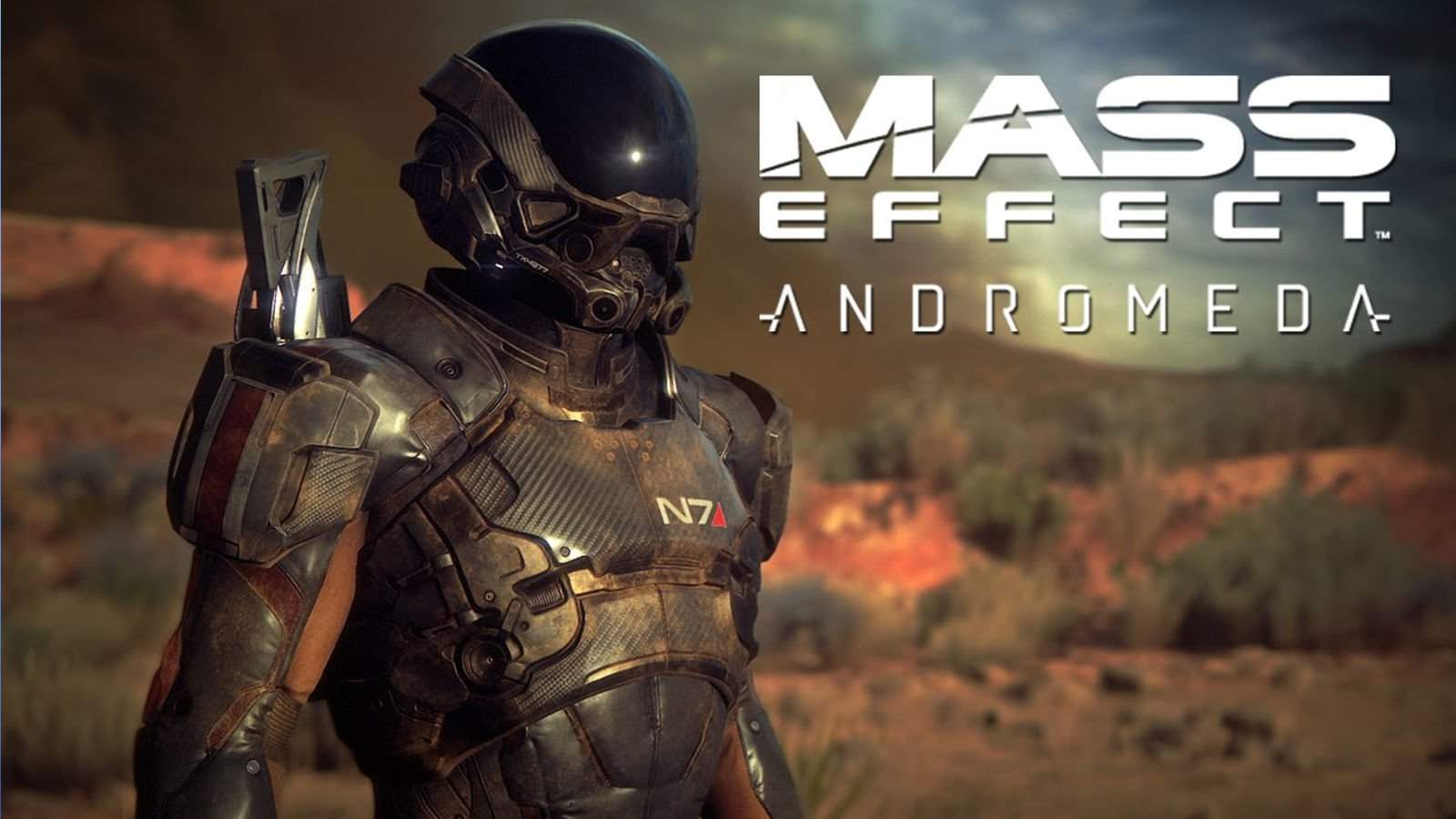
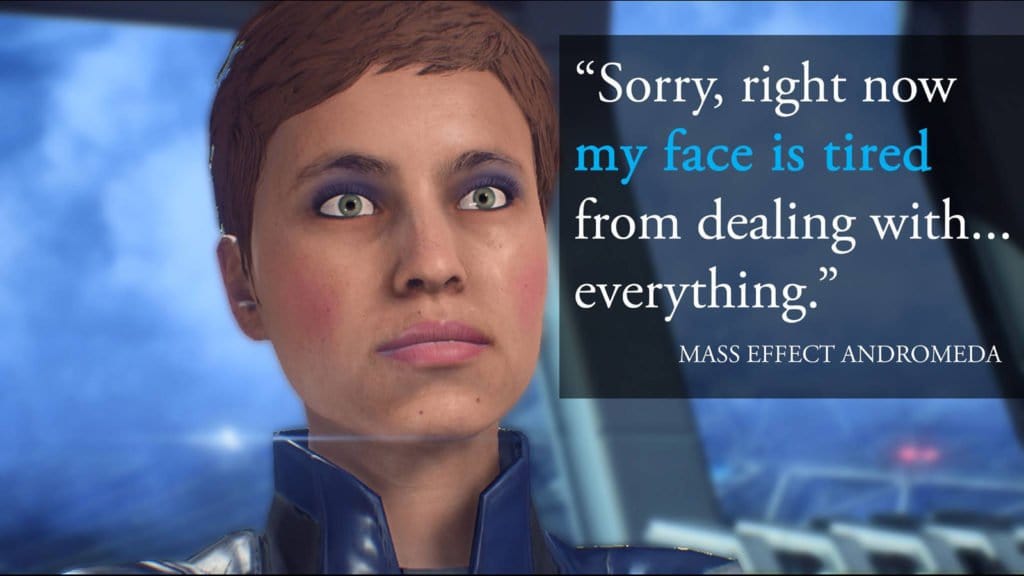


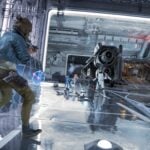



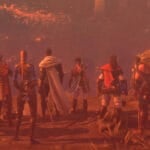




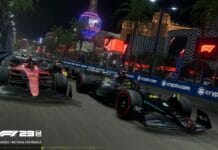
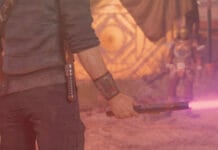
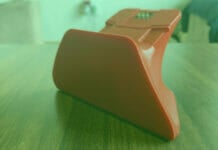
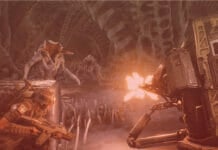
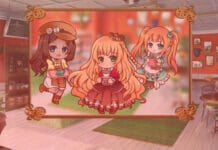


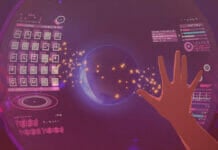
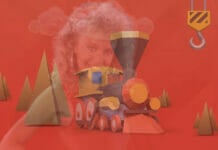
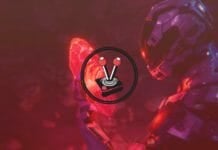
![Razer Kraken V3 Pro Review – Welcome to Boomtown [Redux]](https://vamers.com/wp-content/uploads/2022/07/Vamers-Technology-Razer-Kraken-V3-Pro-Review-Banner-218x150.jpg)
